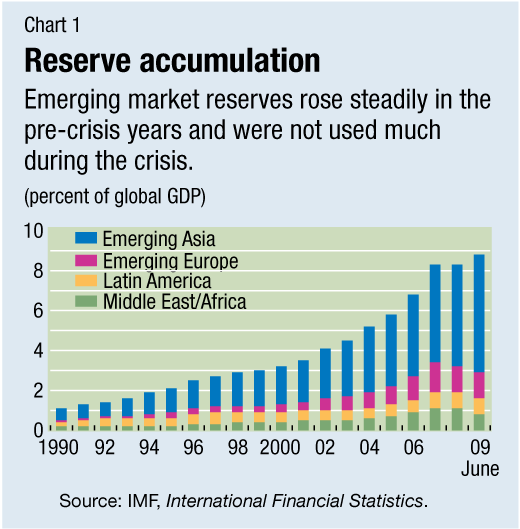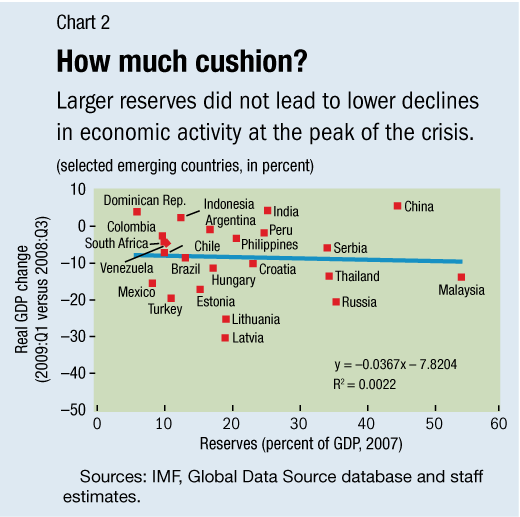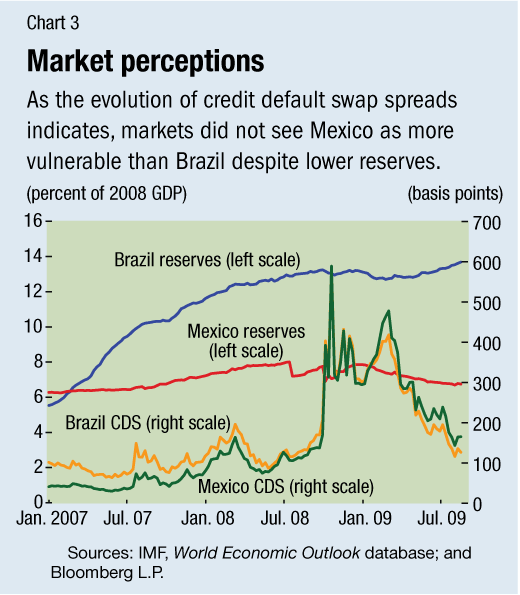
Typical street scene in Santa Ana, El Salvador. (Photo: iStock)
IMF Survey: Did Foreign Reserves Help Weather the Crisis?
October 8, 2009
- Emerging market reserves rose steadily over past decade
- But no clear evidence that large reserves have lowered output declines
- IMF's new lending instruments and capacity could reduce incentives for reserve accumulation
Did the large accumulation of international reserves in many emerging economies mitigate the impact of the financial crisis? While country authorities believe reserves have helped, hard econometric evidence that they have seems hard to come by.

Car dealership in Rio de Janeiro, Brazil. Many emerging market economies believe that high reserves may give comfort in times of crisis (Bruno Domingos/Reuters)
Global Economic Crisis
Many emerging market economies have accumulated large international reserves over the past decade (see Chart 1). For some it was a conscious attempt to insure against the impact of a crisis. For others, it was a byproduct of export-led growth strategies that included maintaining low exchange rates.

It is hard to tell, however, whether this self-insurance was indeed successful. On the one hand, most emerging markets weathered the current crisis better than in the past. On the other hand, this could be attributed to the fact that the crisis originated in advanced economies, and to much better macroeconomic policies and frameworks in emerging economies than in the past. Indeed, as Chart 2 shows, there is no apparent relationship between the amount of reserves held before the crisis (scaled by the size of the economy) and output declines during the crisis. The same holds true when one controls for various relevant factors shaping the effects of the crisis on growth such as trade and financial openness, exposure to falling commodity prices, initial current account imbalances, or other financial vulnerabilities.

In a similar vein, despite large differences in reserves relative to the size of the economy, various measures of market strain behaved in a similar fashion in most emerging markets. Take the case of Brazil and Mexico—the two largest Latin American economies. Even though Brazil has much higher reserves than Mexico, even relative to the size of the economy, there has been very little difference in the performance of credit default swap spreads (see Chart 3). In fact, while reserve accumulation was halted at the peak of the crisis, surprisingly little was used to defend currencies or alleviate financial strains. Apparently, markets react very nervously to news of reserve declines, no matter how strong the initial position is.

Going forward, there may be another round of ratcheting up international reserves in the aftermath of the crisis. While understandable, such a reaction could well dampen the recovery, as it would constrain demand in emerging economies even as demand is squeezed in the advanced countries; and it would exacerbate global imbalances. It is worth considering ways of reducing the need for large reserve accumulation. One would hope that private instruments could supplement the IMF’s efforts to provide alternatives to self-insurance, such as new allocations of Special Drawing Rights (SDRs) and the Flexible Credit Line.
Comments on this article should be sent to imfsurvey@imf.org


